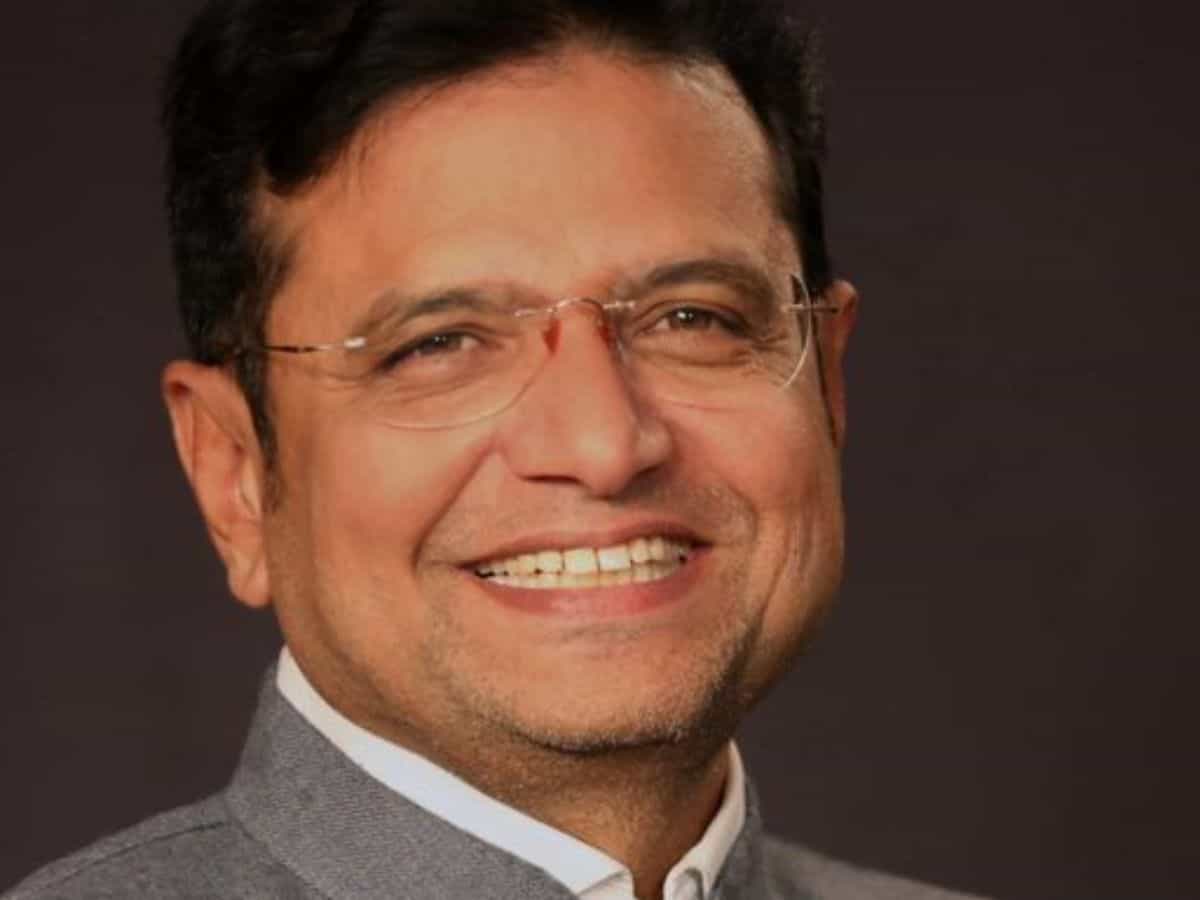
Hyderabad: Proposing possible solutions to various critical issues concerning the Contract Research Organizations (CRO) and Contract Development and Manufacturing Organizations (CDMO) sectors, Telangana industries minister D Sridhar Babu has written to Union chemicals and fertilisers minister JP Nadda on Wednesday to consider his proposals in the best interests of the pharmaceutical sector.
Emphasising the pivotal role played by the CRDMO sector globally in providing essential services that pan the entire drug development life-cycle, Sridhar Babu stated that this segment has been growing at a compound annual growth rate (CAGR) of 10.75% and will reach USD 2.5 Billion by 2030.
Drawing the attention of Nadda on the need to streamline the issue of no-objection certificates (NOC) and the licensing process for drug manufacturing, Sridhar Babu stated that a circular issued by the Central Drugs Standard Control Organisation (CDSCO)on April 30, 2024 made it mandatory to obtain NOCs for manufacturing of unapproved drugs from the CDSCO’s zonal offices.
He stated that after the Telangana government grants manufacturing licenses, the state authority sends the license to the Centre for a counter-signature.
“This procedure ensures that companies seeking the approvals are still required to approach two authorities (State and Centre) sequentially for obtaining approvals, hindering their ability to execute export orders quickly,” he stated.
He suggested the elimination of the need for counter-signature of manufacturing license from the Centre, as export NOCs were already granted by Centre. He opined that it would ensure a clear demarcation, where authority of issuing license rests with the state, while the Centre grants the export NOC.
He also suggested waiving off the NOCs/licenses for new chemical entities in their early stages of research and development (R&D), that could accelerate research and innovation in the country.
Boosting Global Competitiveness of CRDMOs
Explaining the challenges being faced by CRDMOs in expanding their market reach due to complex export processes and customs regulations, Sridhar Babu suggested the Centre to facilitate easier access to star exporter status, and to streamline customs processes through AEO certification for CRDMOs, which could enhance their overall global competitiveness.
Unresolved Duty Dilemma: The Lab Chemicals Quandary
Appreciating the Centre for its rollback of customs duty on lab chemicals to 10% in the recent budget, he stated that the vendors and suppliers were still facing challenges, which was leading to disruptions in the supply chain and adversely affecting critical sectors such as R&D, testing, services, and quality control activities.
He suggested an amendment to the draft gazette notification No 41/2024- Customs, extending benefits to distributors, traders, and resellers, contingent upon an end-use undertaking, and not only to the R&D and Laboratory use. He felt that such a change would ensure a seamless supply-chain, supporting the industry’s sourcing needs and providing relief to all stakeholders.
Requests for Chemical Formulas and Synthetic Scheme Details
Observing that CRDMOs being required to reveal the chemical name or structure during the initial screening phase could jeopardise client confidentiality and reduce the attractiveness of India to compete globally on innovation, Sridhar Babu suggested non-disclosure of proprietary information, and using codes instead of chemical names in those situations.
Optimizing Stability Data Requirements for License Issuance
Noting that CROs were unable to provide stability data for new chemical entities or compounds in the early stages of R&D, Sridhar Babu proposed to introduce flexibility in stability data requirements based on the nature of the project and the client’s needs, if the product/service was only meant for export. he felt that such an approach would enable a more tailored process, reducing unnecessary delays and costs associated with license issuance.
He also requested the Centre to waive off licenses needed for small samples meant for generating R&D data and not meant for commercial release, as he felt it had become burdensome for method transfers, analytical testing, reference standards, or reference samples.
He suggested introducing a tiered licensing system for samples to expedite approvals for analytical testing and reference standards, and to implement a quick and flexible approval process to accommodate small changes in quantity and delivery destination.
Sridhar Babu emphasised that his proposals aimed to streamline the regulatory processes, simplify documentation requirements, standardise review processes, establish clear timelines for approvals, safeguard proprietary information thereby promoting innovation, and enhance India’s global competitiveness.
“These measures will not only accelerate the approval and production timelines, but will also attract significant investments in the country. Your support and timely intervention will be instrumental in ensuring the continued success and global leadership of India’s pharmaceutical industry,” Sridhar Babu urged.



